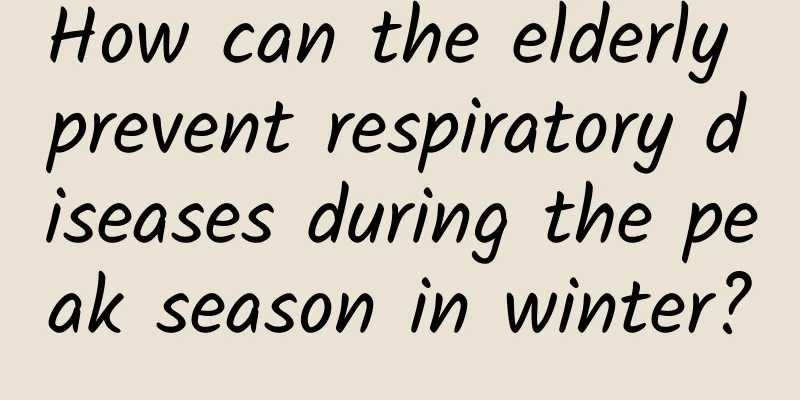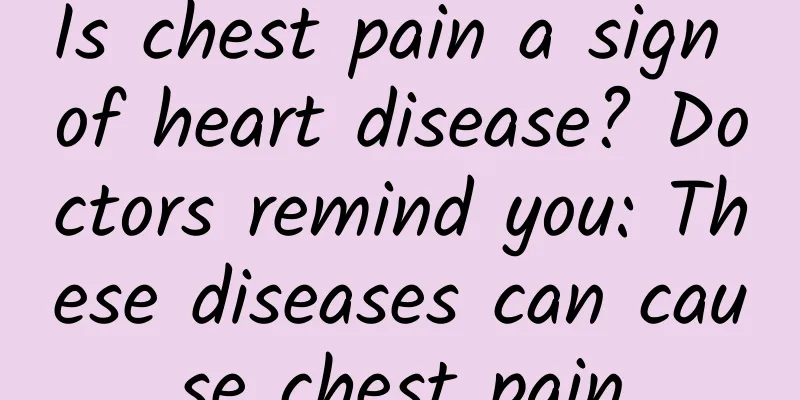How can the elderly prevent respiratory diseases during the peak season in winter?

|
In the cold winter, the sudden drop in temperature and dry air create favorable conditions for the spread of respiratory diseases. For the elderly whose physiological functions gradually decline and whose immunity is relatively weak, preventing respiratory diseases is particularly important. This article deeply explores the factors that put the elderly at risk of respiratory diseases in winter and proposes a set of comprehensive and practical prevention strategies and life suggestions. Respiratory diseases are more common in winter, and the elderly are the main victims of this disease due to the natural decline of their physical functions and decreased immunity. Respiratory diseases such as colds, influenza, bronchitis, pneumonia, etc. not only bring many inconveniences to the daily lives of the elderly, but may also lead to serious complications and even endanger their lives. Therefore, formulating and implementing effective prevention strategies is of great significance to protecting the health of the elderly. 1. Risk factors for winter respiratory diseases in the elderly 1. Climate factors The low temperature and dry climate conditions in winter can easily damage the respiratory mucosa and reduce its defense against viruses and bacteria. 2. Decreased immunity As they age, the immune system of the elderly gradually weakens, their resistance to pathogens decreases, and they are more susceptible to respiratory diseases. 3. Lifestyle changes In winter, the elderly tend to reduce outdoor activities and insufficient indoor air circulation increases the risk of virus and bacteria transmission in closed environments. 4. Impact of underlying diseases The respiratory system of the elderly is often complicated by other underlying diseases, such as hypertension, diabetes, coronary heart disease, etc. These diseases may affect lung function and increase the risk of lung infection. 5. Chronic obstructive pulmonary disease (COPD) Elderly people who smoke for a long time are prone to chronic bronchitis and emphysema, which lead to the destruction and expansion of the airway wall and then form COPD. This disease will affect the respiratory function of the elderly and aggravate breathing difficulties. 6. Sleep-disordered breathing Some elderly people may have sleep breathing disorders, such as snoring, apnea, hypoxemia, etc., which may be related to factors such as upper airway stenosis, muscle relaxation, and obesity. 2. Preventive measures 1. Keep warm and moist The elderly should add clothes in time according to weather changes, and pay special attention to keeping the head, neck and back warm to reduce the irritation of the cold air to the respiratory tract. Using a humidifier or placing items such as a basin indoors to keep the air humidity within a suitable range can help relieve the discomfort of dry respiratory tract. 2. Enhance Immunity The elderly should maintain a balanced diet and take in enough protein, vitamins and minerals to meet the body's basic nutritional needs and enhance immunity. Developing a regular work and rest habit and ensuring adequate sleep time will help restore physical strength and improve immunity. Choose appropriate exercise according to physical condition, such as walking, Tai Chi, yoga and other light exercises to enhance physical fitness and improve resistance. 3. Improve the indoor environment Open windows regularly to ventilate and keep the indoor air fresh, which helps reduce the concentration of viruses and bacteria in the room. It is recommended to open windows for ventilation at least twice a day, each time for no less than 30 minutes. Keep the room clean, clean the room and wash the bedding regularly to reduce the impact of allergens such as dust mites on the respiratory tract. It is recommended to use a vacuum cleaner or a damp cloth to wipe the surface of the furniture to avoid dust. 4. Vaccination Older people should get influenza and pneumonia vaccines as recommended by their doctors to improve their resistance to specific pathogens and reduce the risk of infection. 3. Life Advice 1. Respiratory protection Wear a mask when going out, especially in public places or environments with poor air quality, to reduce the irritation of the respiratory tract by the inhalation of cold air and pollutants. After returning home, clean the nose, mouth, and hands in time. You can use saline or special nasal wash, or antibacterial soap, etc. to reduce the attachment and reproduction of viruses and bacteria in the body. 2. Psychological adjustment The elderly should always maintain a positive and optimistic attitude, learn to adjust their emotions and stress, and avoid the adverse effects of excessive anxiety and depression on their physical health. They can relax and cheer themselves up by participating in hobbies or communicating with relatives and friends. In addition, they can actively participate in social activities to enhance emotional communication and improve their mental health. They can participate in collective activities such as senior citizen universities and community activities. 3. Seek medical help Once the elderly have respiratory discomfort symptoms, such as cough, sputum, fever, etc., they should seek medical examination and treatment in time to avoid delays in treatment and serious consequences. Take medication on time as prescribed by the doctor, and do not change the dosage or stop taking medication at will. The elderly often suffer from multiple chronic diseases at the same time and need to take multiple medications for a long time. Therefore, medication should be taken strictly according to the doctor's instructions and prescriptions to avoid drug interactions and adverse reactions. 4. Get regular health checks Elderly people should have regular health checks to keep abreast of their physical conditions. Elderly people with chronic respiratory diseases should have regular follow-up checks to detect changes in their conditions and take appropriate treatment measures. 5. Stay away from smoky environments Cigarettes are incomplete combustion products that contain a large amount of harmful substances such as nicotine, tar, and carbon monoxide. They can restrict the movement of cilia in the human trachea and bronchus, reducing the ability to remove bacteria; they can also cause bronchospasm and induce respiratory tract infections; for patients with hypertension, emphysema, cor pulmonale, etc., they can worsen the course of the disease and cause coughing, wheezing, and suffocation, inducing and aggravating the disease[4]. Therefore, the elderly should quit smoking as soon as possible. Conclusion: Winter is a high-incidence season for respiratory diseases among the elderly, but the risk of disease can be significantly reduced by implementing effective preventive measures and adjusting lifestyles. Looking ahead, with the continuous deepening of medical research and the popularization of health management concepts, I believe that more new methods and technologies for the prevention of respiratory diseases among the elderly will emerge. We hope that these innovative achievements can bring more blessings and guarantees to the healthy lives of the elderly. ( Miao Junfeng , Beijing Taikang Yanyuan Rehabilitation Hospital ) |
<<: 【Popular Science】Irregular menstruation, you need to know these
>>: How to care for wounds after cesarean section
Recommend
Taking Tianxi Pills while preparing for pregnancy
Tianxi Pills can improve menstrual conditions and...
Is it B-ultrasound or vaginal ultrasound to check ovarian follicles?
Ovum is a substance that exists in a woman's ...
Is spontaneous abortion bleeding heavy?
Some pregnant women often suffer from miscarriage...
Is light red menstrual blood normal?
Sometimes, women will find that the color of thei...
What gynecological disease causes acne on women’s chin?
If women often get acne on their chin, it will ha...
How to maintain the uterus and ovaries
Everyone wants to make our bodies healthier, espe...
Is it necessary to go to Anding Hospital to treat insomnia?
This is a 100% true experience article about inso...
Why can't we eat dead crabs? How can we prevent hairy crabs from dying so quickly?
It’s the annual hairy crab season recently, and t...
What is the reason for spotting when you are pregnant?
If you see spotting in the early stages of pregna...
What are selenium-rich foods? What are the benefits of selenium-rich foods?
Selenium-rich foods are foods rich in the trace e...
Causes of endometrial thickness 1.1
The female body structure is very complex. Once g...
What medicine is good for external itching
Vulvar itching is a common gynecological disease ...
What to do if you have nausea and can't eat during pregnancy
In the early stages of pregnancy, most pregnant w...
Pre-pregnancy preparation is the first step to ensure children's health, and it is even more important in the era of three children
This is the 3445th article of Da Yi Xiao Hu In or...
What color is rice wine? Does drinking rice wine cause internal heat?
Rice wine is a mild food. Whether it is cold or h...









